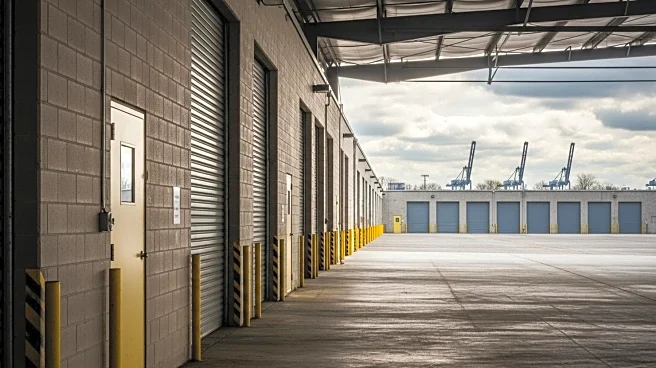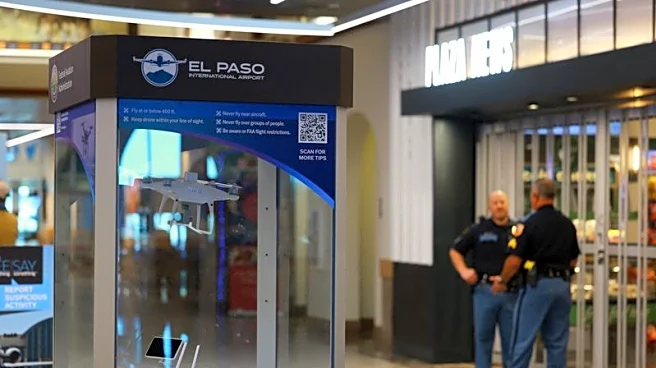What is the story about?
What's Happening?
The industrial real estate market in West Michigan is experiencing a slowdown after several years of rapid growth. Local real estate experts attribute this cooling to a combination of high interest rates and tariff-related uncertainties. Despite these challenges, there remains optimism about the region's industrial landscape. According to Stu Kingma, partner and executive vice president at NAI Wisinski of West Michigan, the market has been operating at a high pace for years and is now adjusting to a more sustainable speed. The latest industrial market trend report from NAI Wisinski indicates a decrease in net absorption to 418,091 square feet in the second quarter, with a stable vacancy rate of 3.2%. The southeast and southwest submarkets have seen a decline in occupancy, while the northwest submarket has shown gains driven by manufacturing. Tariff policy changes have also contributed to the market's slowing momentum, as businesses face challenges in decision-making due to potential price increases.
Why It's Important?
The slowdown in West Michigan's industrial real estate market reflects broader economic uncertainties that could impact local businesses and the regional economy. High interest rates and tariff-related issues are creating a cautious business environment, potentially affecting investment and expansion plans. This market adjustment could lead to changes in how companies operate, with some considering consolidating their operations to smaller footprints. The industrial sector's performance is crucial for West Michigan, as it supports manufacturing and other key industries. A continued slowdown could affect job creation and economic growth in the region. However, the market's resilience, due to a lack of oversupply and ongoing speculative projects, suggests that West Michigan may weather these challenges better than other regions.
What's Next?
As the market continues to adjust, businesses and developers in West Michigan are likely to monitor economic indicators closely, particularly interest rates and tariff policies. The region's industrial developers are pursuing speculative projects, which could provide new opportunities for businesses seeking space. These developments, such as Clark Logic LLC's projects in Kalamazoo County and Battle Creek, signal confidence in the region's potential despite current uncertainties. Stakeholders will need to adapt to changing market conditions, potentially leading to strategic shifts in operations and investments. The ongoing development of industrial spaces may help alleviate some of the pressure from limited availability, supporting future growth.
Beyond the Headlines
The current market conditions in West Michigan highlight the complex interplay between local economic factors and broader geopolitical issues. The impact of tariffs and interest rates on business decisions underscores the need for companies to remain agile and responsive to external pressures. Additionally, the region's ability to maintain a balanced market without oversupply could serve as a model for other areas facing similar challenges. The focus on speculative projects suggests a long-term commitment to regional development, which could foster innovation and attract new industries to West Michigan.

















